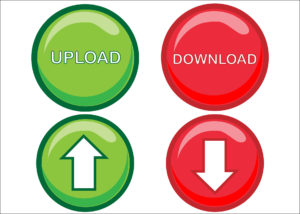 Browsing websites online and creating them are two entirely different experiences. One is so easy that, usually, your grandmother can do it. The other often requires a professional, especially if you want to make it look a particular way.
Browsing websites online and creating them are two entirely different experiences. One is so easy that, usually, your grandmother can do it. The other often requires a professional, especially if you want to make it look a particular way.
Creating a website has numerous elements to it that you don’t have to deal with when you simply browse the internet. When you take the first step towards creating a website, one of the biggest problems that you face is one that you will have rarely thought of before – how to upload information from your computer to your new website. This is where content management systems come into play.
The Issue: Downloading v. Uploading
The crux of the issue and the difficulties that you’ll face is pretty simple. When you browse the internet, files typically transfer between the internet and your computer’s hard drive in one direction – from the internet, to your computer. This is downloading.
Uploading information – sending it from your computer’s hard drive to the internet – is much rarer. Even when you do upload files, by, for example, attaching a document to an email, the process is easy because your email provider has a set process for doing it.
If you want to create your own website, however, there is no set process for uploading information from your computer to the site.
Content Management Systems
This is where content management systems (CMS) come in. A CMS is a software that allows you to interact with your website, filling it with content that you have created. Especially for beginners, and even for non-professionals, CMSs provide an intuitive process to interact with your website, without having to learn to write code.
The CMS Market
With the explosion of online business and the need for non-professionals to build their own websites, numerous CMS platforms have come into existence to fill the market. By far the most popular, especially for novices, is WordPress, which provides a host of basic services in a user-friendly format. For those who want to get their hands dirty in computer code, though, there are numerous other CMS providers out there that give you the freedom to go outside of what WordPress can offer.
Myers Freelance: Professional Legal Blogging
Handling your law firm’s online content is made much easier by CMS software. However, that does not change the fact that creating new material for your site is a long and difficult process. This is where the legal bloggers at Myers Freelance can help. Contact us today to get started on your law firm’s website, regardless of whether you have already set it up, or whether it’s still just on the drawing board.